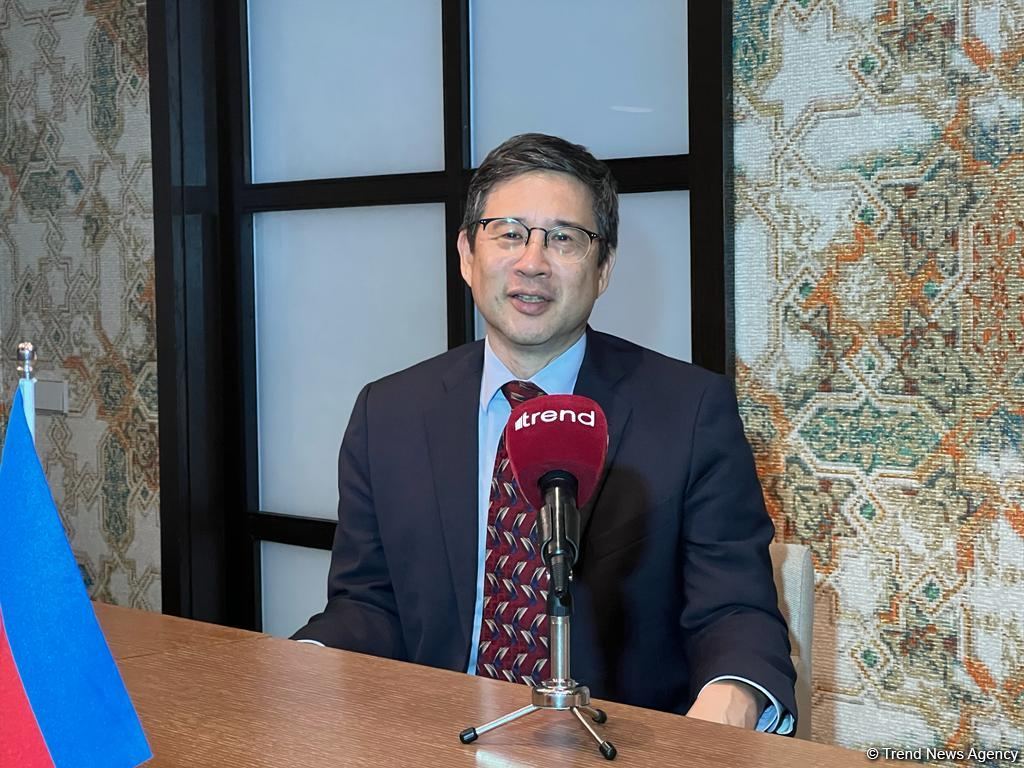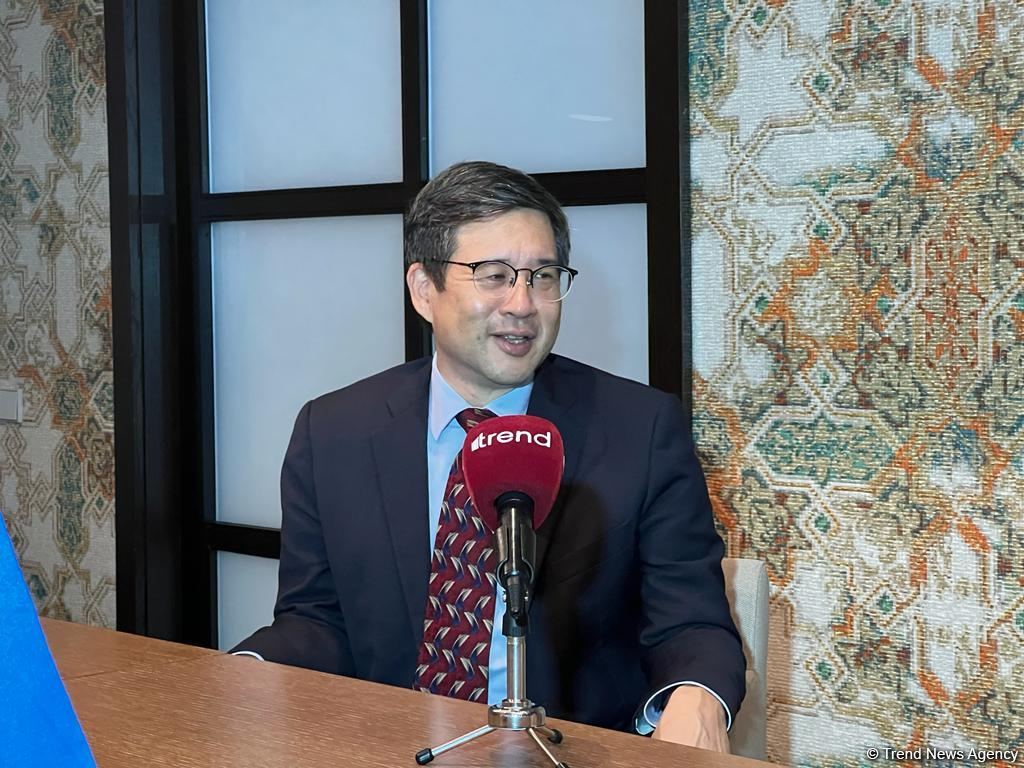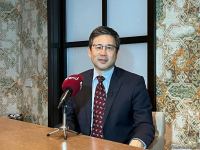BAKU, Azerbaijan, October 3. Asian Development Bank (ADB) forecasts Azerbaijan’s GDP growth at about 4 percent in 2022, ADB’s Chief Economist Albert Park told Trend in an exclusive interview.
"Azerbaijan has also benefited from high energy prices, which helped increase the country’s budget revenue, as well as its current account balance. We have upgraded our forecast for Azerbaijani economic growth for 2022. Now, we expect it at probably more than 4 percent this year, with a slightly lower forecast for 2023," he said.
According to the chief economist, there have been some benefits for the countries of Central Asia and South Caucasus on the back of the ongoing geopolitical developments, due to remittances and capital moving from Russia to Azerbaijan, Georgia, and others.
"One thing that we know is happening is that, due to the sanctions imposed on Russia, trade flows have moved south. So, that is an opportunity. Another opportunity concerns the agreement between Azerbaijan and the EU to double gas supplies, which is a positive development for Azerbaijan," Park explained.
Meanwhile, Azerbaijan’s inflation rate is forecast to be in the double digits this year, he added.
He said the ADB expects energy prices and inflation in most regions to remain high in 2022 and moderate somewhat next year, partly due to lower demand given slower global growth.
"Many central banks have an inflation target. So, for instance, inflation in Azerbaijan right now is probably above what the central bank would like to see. At the same time, central banks have to analyze carefully the sources of inflation and balance the need to control inflation with maintaining the economic recovery," he said.
According to the chief economist, in the US, inflation peaked at 9.1 percent earlier this year and has now started to come down. In Europe, it has also reached over 9 percent, but it is not really clear what the direction will be, given the difficulty in substituting Russian energy.
"In Asia, inflation has been more modest. The region relies more on rice; that is why food inflation has been quite moderate," he said.
As Park explained, the inflation spike that has been seen all over the world is due to increased commodity prices.
"Energy and food prices have been the catalyst, but a real concern is if those prices start to lead to higher price expectations, higher wages, and production cost increases. So, if inflation starts to spread to other goods, this is when it gets more difficult. We are strongly recommending that central banks all over the world be very vigilant in monitoring the inflation situation and avoid falling behind the curve," he noted.
As the ADB’s chief economist thinks, Azerbaijan is in a better position than most countries, due to the increase in budget revenue.
"The goal in Azerbaijan is to look beyond the current situation and prioritize longer-term objectives. The main goal is to diversify from oil revenues as the main source of economic production, and there are some promising signs. It looks like non-oil activities have been growing rapidly lately. And there are plans to set up new industrial parks and to support non-oil production in different ways. This is a correct orientation," he said.
In general, ADB does not expect the global economy to revive until the second half of 2023, Park saidş
"We expect Europe to go into recession in the second half of this year. We are a bit more optimistic about the US, because of its employment momentum and the recent moderation of inflation. But there are many risks and uncertainties. There is also a lot of concern about the growth slowdown in China, which is affecting Asian economies," he said.
Park said a strict zero COVID-19 policy has led to disruptions in supply chains and made consumers there lose confidence and spend less, which led to the economic growth forecast downgrading. At the same time, China had issues with the real estate market, which usually supports growth but has been dormant and over-leveraged. This could also take some time to unwind.
Although ADB’s forecast for Asia is being adjusted downward somewhat, the bank still expects growth in Asia to be somewhere between 4-4.5 percent in 2023, which is reasonably good, and still the fastest growth rate among the major regions of the world, he noted.
"In terms of the global economy really reviving, we do not think it’s likely until maybe the second half of 2023 because we need to see interest rate hikes by the major central banks play out. Once they are done, there may be momentum for recovery," Park said.
Further speaking, the ADB’s chief economist noted that ADB appreciates Azerbaijan’s efforts in shifting to a green economy.
"ADB is very keen to help address the challenges of climate change. We encourage countries we work with to put priority on greening their economies by shifting to renewable energy resources. We are working in Azerbaijan to support projects in renewables and support the government in its green strategy. Azerbaijan has been dependent on fossil fuels for a long time, but we see a political will in the country to switch to a green economy, and we see positive developments," he concluded.
---
Follow the author on Twitter: @mariiiakhm











